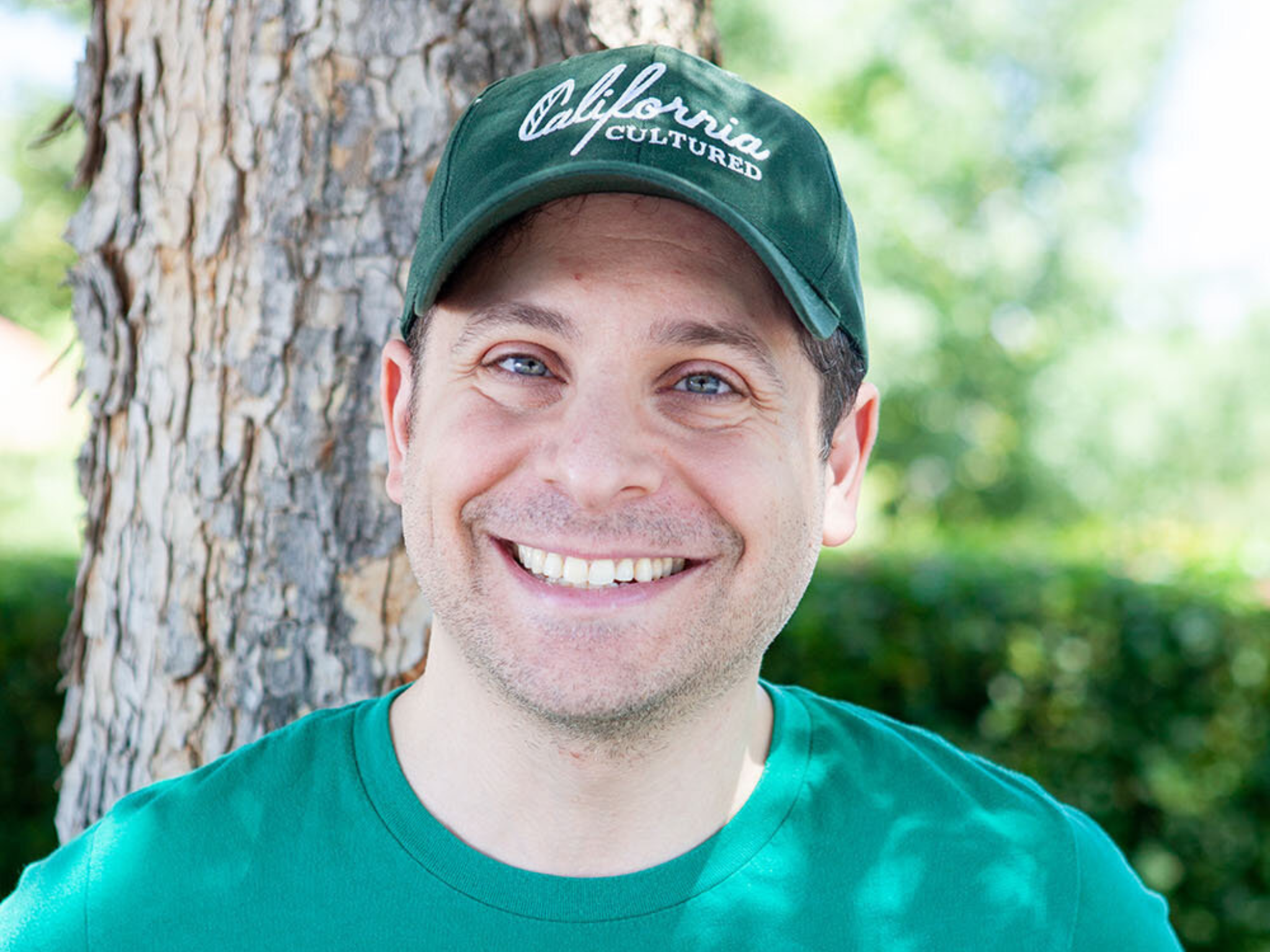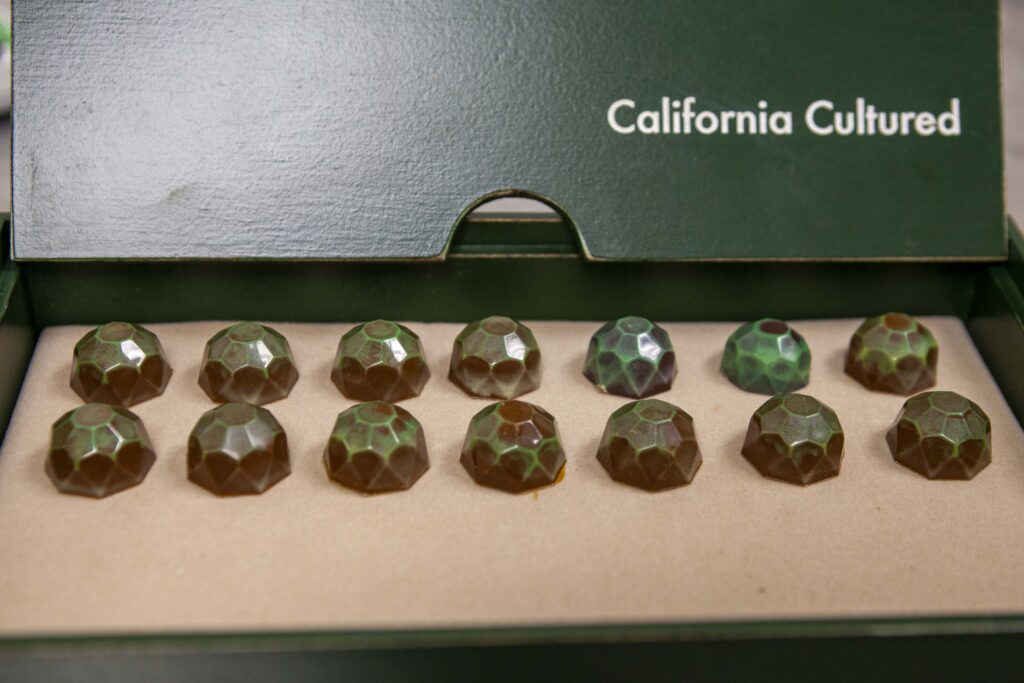
California Cultured, a food tech startup making cocoa via cellular agriculture, has transitioned to large-scale biomanufacturing in a key breakthrough for the industry.
US startup California Cultured has successfully moved from lab-scale shake flash experiments to large-scale manufacturing of its cell-based cocoa, proving the viability of using cellular agriculture to make commodity foods facing multiple risks.
The expansion to precision-controlled bioreactor fermentation was executed with the help of Berkeley-based biomanufacturing firm Pow.Bio, and validates the economic and technical feasibility of producing cell-cultured cocoa on a commercial scale.
It is a major win for the cellular agriculture industry and comes at a time when the chocolate industry faces numerous climate and supply chain threats, which have driven cocoa prices to record highs and threatened the future of the industry as we know it.
How California Cultured reached commercial scale

Founded in 2020 by CEO Alan Perlstein and COO Harrison Yoon, California Cultured collects samples from a cocoa plant with ideal organoleptic properties. These are then cultured in fermentation tanks that mimic the conditions of the rainforests where cocoa thrives. Within three to four days, the cells are ready to be harvested, fermented and roasted.
To optimise it cocoa fermentation process for commercial volumes, it worked out of Pow.Bio’s newly commissioned 25,000 sq ft facility, which offers clean room capabilities, dual-chamber continuous fermentation systems, and real-time AI-based process control.
Pow.Bio helps synthetic biology companies commercialise faster and at competitive cost advanatges through its AI platform, which rapidly identifies better-performing process conditions for fermentation, helping increase outputs from existing infrastucture in a short time frame.
The project with California Cultured focused on the culture media optimisation (which makes the bulk of the cost of cell-based foods), oxygen transfer rates, and pH control to improve cell growth and metabolite production.
Among its core development goals were boosting metabolic efficiency to enhance growth kinetics and flavonoid and lipid synthesis (which are crucial for replicating the taste and mouthfeel of conventional chocolate). In addition, it tested scalable feed strategies and conducted continuous bioprocess monitoring to lower the cost per kg while maintaining product consistency.
“This scale-up marks a major achievement in the food tech sector,” said Scott Mitchell, CEO of Cult Food Science, an investor in the startup. “By unlocking scalable, ethical alternatives to traditionally resource-intensive commodities like cocoa, California Cultured is helping shape a more sustainable global food system.”
Cellular agriculture has the potential to drastically reduce emissions, resource use, water consumption, and land use, but the industry has historically been hampered by high costs, thanks in part to the use of pharmaceutical bioreactors that are ill-suited for food production.
Cult Food Science called California Culture’s breakthrough a “key inflexion point” for the alternative cocoa category, and suggested that it laid the “foundation for future innovations, including continuous fermentation and commercial launch of cocoa and coffee-based ingredients and products”.
Alternative cocoa is becoming more important by the day

California Culture is one of several startups working on cell-based chocolate, including Israel’s Celleste Bio and Kokomodo, Switzerland’s Food Brewer.
These companies are aiming to address an urgent problem. Producing dark chocolate already emits more greenhouse gases than every other food except beef, while each bar of chocolate requires 1,700 litres of water on average. Add to that the vast amount of deforestation linked to the cocoa industry, thanks to increasing demand and the widespread use of palm oil.
The cocoa industry finds itself in a two-sided bind: it is both exacerbating climate change and facing the full force of its impacts. Global cocoa stocks have dropped to their lowest levels in a decade. Ivory Coast and Ghana – the two largest producers of the crop – have been the biggest victims, thanks to extreme weather and crop diseases (as well as reduced plantations in favour of illegal gold mining).
Scientists have warned that cocoa trees are threatened, and a third of them could die out by 2050, which could lead to a global chocolate shortage.
All this has already caused major price hikes. In 2024, cocoa futures broke all-time records, and the cost will continue to remain high this year. That has hurt the sales of industry behemoths like Hershey’s, whose profit forecast for 2025 is below analysts’ expectations.
Some are now turning to alternative cocoa products – Barry Callebaut, the world’s largest cocoa manufacturer, is using precision-fermented sunflower seeds for some of its offerings in Europe. Others, like Lindt & Sprüngli and Sparkalis (the VC arm of bakery and confectionery group Puratos), are investing in cell-based cocoa startups.
Sparkalis is also an investor in California Cultured, which opened its new 12,000 sq ft facility in West Sacramento earlier this year. Additionally, it is co-developing products with Japanese chocolate giant Meiji as part of a decade-long partnership. “Meiji came to us because unpredictable weather patterns – including heavy rainfall – have disrupted cacao cultivation, leading to a consecutive year of supply shortages,” California Cultured’s head of strategy, Steve Stearns, told Green Queen last year.
“This scarcity has driven futures prices to unprecedented levels, reflecting the strain on supply and demand dynamics within the chocolate industry.”
Aside from cell-based cocoa, many companies are making cocoa-free chocolate from low-carbon ingredients, including Compound Foods, Voyage Foods, Prefer, Planet A Foods, Foreverland, Nukoko, Endless Food Co, and a host of others.
The post Californian Startup Proves Commercial Viability of Cell-Based Chocolate appeared first on Green Queen.
This post was originally published on Green Queen.